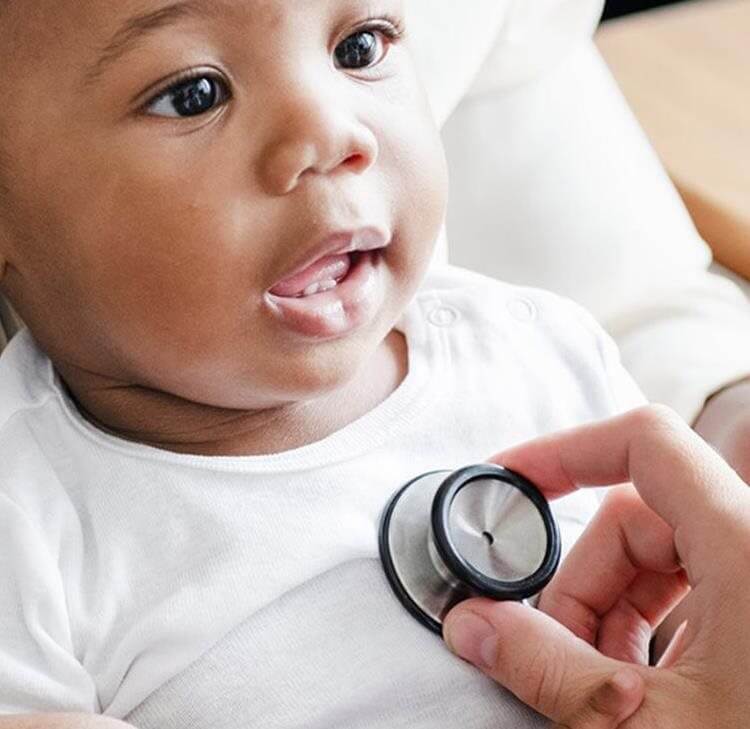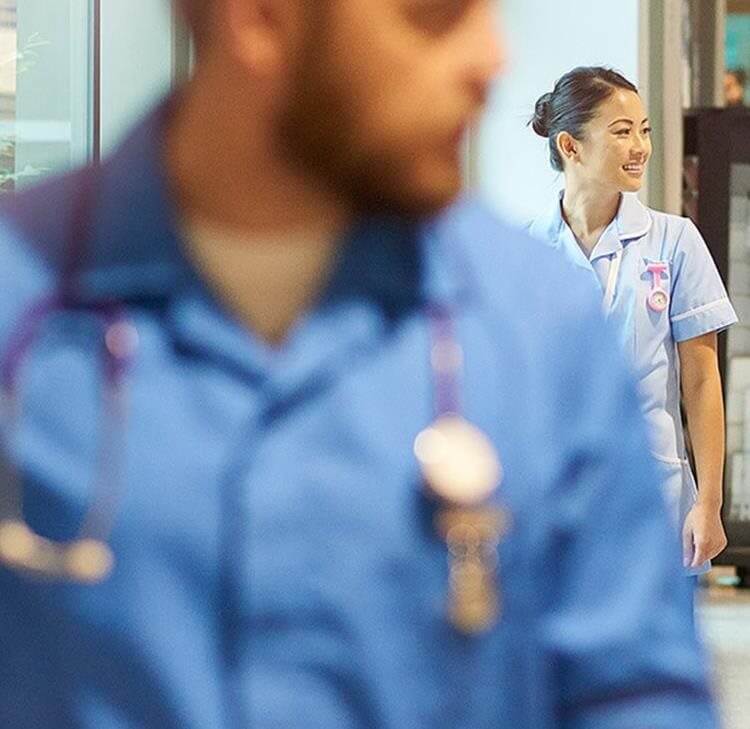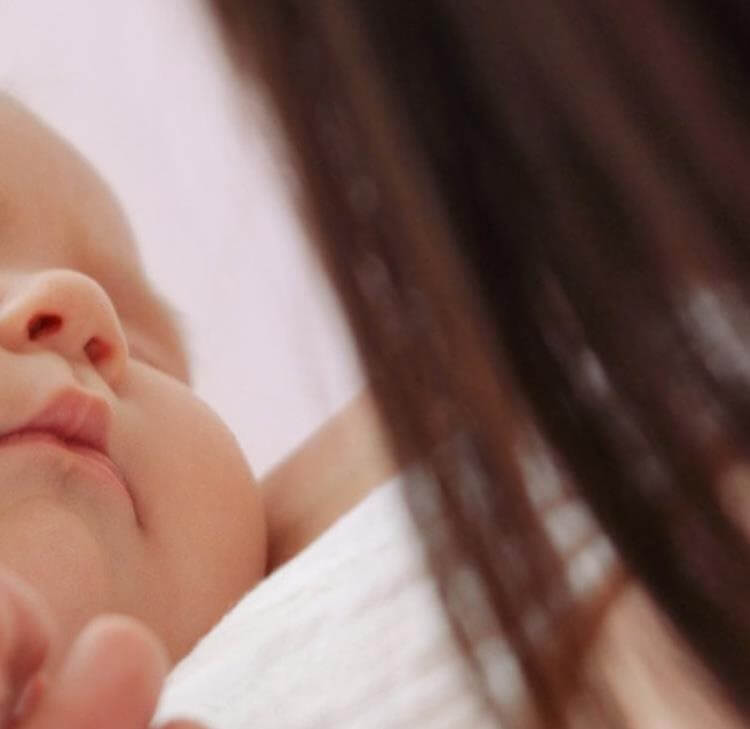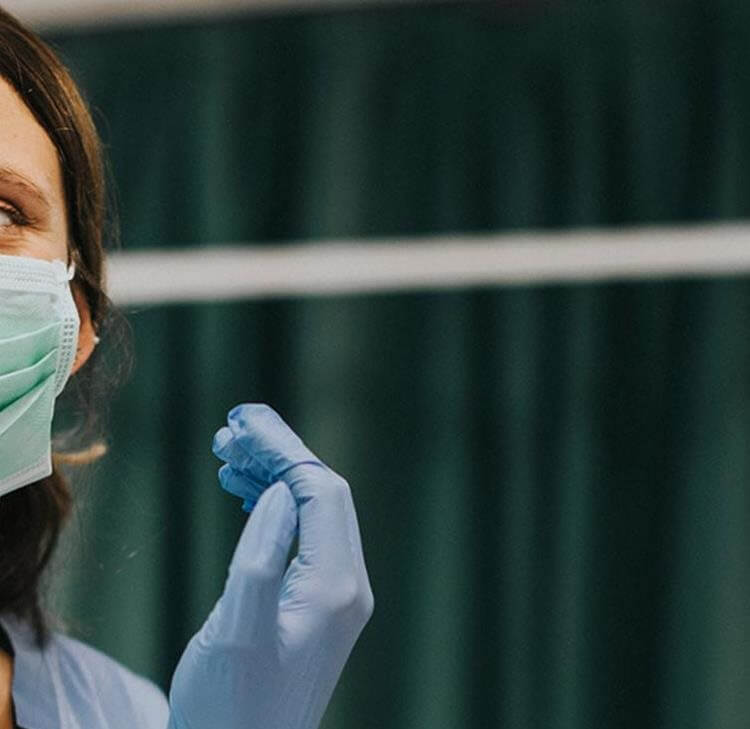A DISCERN study, led by a team at King’s College London and working with Sands (a baby loss charity which campaigns in saving babies’ lives and supporting bereaved families), BirthRights, the Birth Trauma Association (UK) and The University of Manchester, was released in August 2024.
The study, funded by the National Institute for Health and Care Research (NIHR), sets out actions for improving communication with families after things go wrong while receiving NHS maternity care. This is particularly relevant given that it is Baby Loss Awareness Week.
Researchers, led by Professor Jane Sandall and Dr Mary Adams, reviewed existing research on how open disclosure currently works in healthcare settings (including review of hospital policies and guidance), interviewed families who had been through the hospital review process and interviewed healthcare staff and managers. Focus groups also took place with families, healthcare professionals and policy makers to consider how best to improve open disclosure in practice.
The study highlights that effective open disclosure discussions with families, who have received NHS maternity care which has caused harm, should provide families with open and honest answers to ensure that the same mistakes do not happen to others.
The full report can be accessed here
A video has also been released with the study which demonstrates the difference that effective open disclosure can make for families that have suffered the loss of a child. The video delivers a powerful message, stating “It’s not just about organisations “saying this is how we should work with families”, everybody needs to be on the same page. It needs to be the culture. It’s about this being our moral compass”.
Study findings
The study found that there are five main areas of particular importance when it comes to there being open and honest disclosure with bereaved families:
- Meaningful acknowledgment of harm- recognising the pain and loss experienced by families, including an understanding that the death has had a profound impact on the lives of the parents and family members;
- Understanding what happened- ensuring that families are supported in understanding exactly what occurred in order to provide clarity to them;
- Involvement of family in investigations- acknowledging that families should be central to investigations/reviews that follow the death of a baby;
- Compassionate and skilled communication- focussing on training of healthcare staff to handle discussions with families sensitively and with compassion;
- Commitment to change- recognising the importance to learn from these incidents and make necessary changes to prevent harm occurring in the future.
Study recommendations
Recommendations from the study include the following:
- Highlighting the importance of there being ongoing communication with families during and following reviews;
- Developing a standard approach to open and honest discussions with families;
- Developing training for healthcare staff to ensure effective and compassionate communication with families during reviews/investigations.
Our team
At Browne Jacobson we welcome this study which focusses on an important area of maternity care. Ensuing healthcare staff work openly with families when distressing and harmful outcomes occur is of paramount of importance. The effect of such events on families and staff cannot be underestimated.
We are committed to assisting healthcare organisations with delivering on their strategy to improve maternity outcomes. Our specialist maternity division can provide advice, support and training to Trusts in building on their practices of effective communication with families who suffer harm. Please do get in touch to discuss how me may be able to help your organisation.
Browne Jacobson’s maternity resources hub also provides resources and information about our specialist team and includes our contact details.
Discover more
You may be interested in...
Opinion - Maternity services
Celebrating maternity excellence
Opinion - Maternity services
Antenatal Screening Wales Annual Report 2022-24
Legal Update - Maternity services
The Generation study at UHDB: A pioneering approach to genetic healthcare
Legal Update - Maternity services
Improving maternity care for recent migrant women with language barriers
Legal Update - Maternity services
New rights to Neonatal Care Leave and Pay Act: What do employers need to know
Legal Update - Maternity services
Improving maternity safety: Insights from MNSI’s annual recommendation report
Legal Update - Maternity services
University Hospitals of Derby and Burton NHS Foundation Trust invest in telemetry to improve maternity care and patient experience in labour
Legal Update - Maternity services
Informed consent and caesarean birth: RCOG launches new obstetrics animation
Legal Update - Maternity services
MNSI annual report 2023/24: Key insights and future ambitions for maternity safety
Opinion - Maternity services
Enhancing care for women with ectopic pregnancies: Insights from MBRRACE-UK
Legal Update - Maternity services
DISCERN study published: How to improve discussions with families when things go wrong in maternity care
Opinion - Maternity services
Revolutionising patient care: Innovative kit for instant translation in 240 languages
Opinion - Maternity services
New Government plans for NHS maternity services: What can we expect?
Opinion - Maternity services
New online system streamlines maternity services at The University Hospitals of Derby and Burton NHS Foundation Trust
Opinion - Maternity services
The power of parental touch for babies undergoing painful procedures
Opinion - Maternity services
Newborns born outside of hospitals at higher risk of hypothermia during emergency responses
Opinion - Maternity services
Health Service Journal reports on growing trend of “free birthing”
Legal Update - Maternity services
Introduction of baby loss certificates gives recognition to millions of bereaved families in the UK
Legal Update - Maternity services
Chesterfield Royal Hospital ranked amongst the top Trusts nationally in the 2023 Maternity Survey
Opinion - Maternity services
Coronial investigations of stillbirths - summary of consultation responses
Opinion - Maternity services
BBC investigation finds NHS interpreting service problems contributed to baby deaths and serious brain injuries
Legal Update - Maternity services
The NHS Long Term Workforce Plan 2023
Legal Update - Maternity services
HSIB publishes 'Maternity Investigation Programme: Year in Review 2022/23'
Opinion - Maternity services
Racial disparities in maternity care
Opinion - Maternity services
University Hospital Leicester hold their inaugural Maternity Safety Conference
Opinion - Maternity services
Changes to redundancy protections for employees post-maternity leave
Press Release - Maternity services
Father Christmas comes to University Hospital Coventry and Warwickshire care of Browne Jacobson’s Birmingham Office Community Action Group
Opinion - Maternity services
The Patient Safety Incident Response Framework (PSIRF) and its impact on maternity services
Guide - Maternity services
Mediation guide for Clinicians: What do you need to know and how do you need to prepare
Opinion - Maternity services
Baby Loss Awareness Week
On Saturday 15 October a wave of light swept the internet when thousands of people flooded social media with pictures of candles to remember the babies that they have lost. This event signifies the end of Baby Loss Awareness Week which aims to break the silence that is associated with baby loss in pregnancy and infancy.
Opinion - Maternity services
The impact of COVID-19 on maternal deaths
HSIB published its report on Maternal deaths during the first wave of COVID-19. The report takes a closer look at the impact that COVID-19 had during the initial period of March to May 2020.
Legal Update - Maternity services
The Ockenden Final Report – a blueprint for safe maternity care from ward to Board
The much anticipated final Ockenden report was published on 30 March 2020. The final report sets out the findings of the review into care provided to 1,486 families, and sets out a blueprint for safe maternity care.
On-Demand - Maternity services
Maternity mock inquest - film 1
Consent is often a key issue in obstetric claims and if it is relevant to the facts of the death, its likely to be an area explored by a coroner.
On-Demand - Maternity services
Maternity mock inquest - film 2
This video illustrates some of the issues that can arise when a witness is poorly prepared.
On-Demand - Maternity services
Maternity mock inquest - film 3
This film highlights the importance of creating an open and transparent culture where staff feel able to speak up will help Trusts to identify problematic practise before significant issues arise.
Legal Update - Maternity services
Checklist when preparing for remote participation in an inquest hearing
Lockdown restrictions in March 2020 led to many inquest hearings being postponed. As restrictions eased, Coroners came under increasing pressure to reduce the number of delayed inquest hearings. In June 2020, the Chief Coroner issued Guidance No. 38 to facilitate remote participation in coroner’s inquests.





























